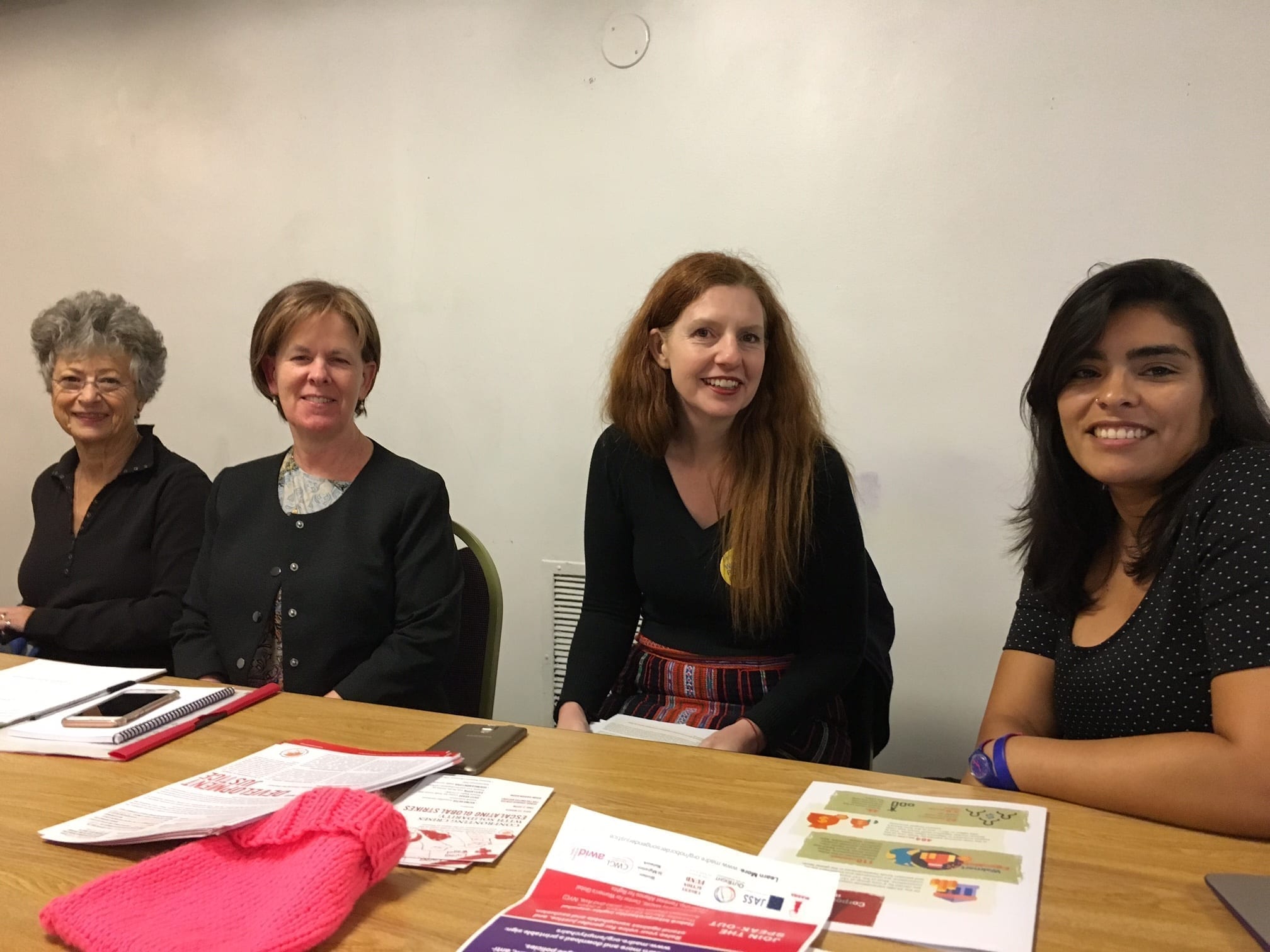
Mar 17, 2017
Understanding the scale and depth of corporate power’s impact on workers, the environment and public services—and channeling that knowledge into joint action to coordinate and maximize an effective response—is crucial to decreasing economic inequality and reclaiming space for the 99 percent, panelists said yesterday in New York City.
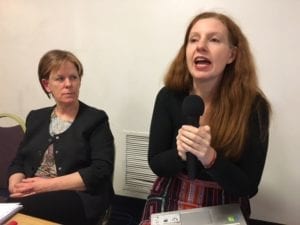
“Our solidarity is what’s important in addressing global power”—Kate Lappin, APWLD. Credit: Solidarity Center/Tula Connell
“Our solidarity is what’s important in addressing global power,” said Kate Lappin, regional coordinator of the Asia Pacific Forum on Women, Law and Development (APWLD). “The answer is not about blaming migration or ‘the other,’ the answer is solidarity,” Lappin said, speaking at “Impact of Corporate Power on Women’s Economic Empowerment,” a session sponsored by the Association for Women’s Rights in Development (AWID), Solidarity Center, APWLD and Global Policy Forum.
The panel was one of several sessions the Solidarity Center and its partners held in conjunction with the March 13–24 meeting of the United Nations Commission on the Status of Women (CSW). Some 200 union women activists from around the globe are taking part in events.
The panel stems from the 2016 report, “Challenging Corporate Power: Struggles for Women’s Rights, Economic and Gender Justice” produced by AWID and the Solidarity Center, in conjunction with Just Associates (JASS). The report explores how corporations in collusion with elites and other powerful actors are exerting their power to transform economic and political systems. The report then illustrates how this power impacts women and oppressed peoples.
Earlier this week, the Solidarity Center and International Trade Union Confederation (ITUC) convened sessions examining the prevalence of gender-based violence at work and mobilization strategies for championing passage of an International Labor Organization (ILO) convention preventing gender-based violence on the job. Yesterday, three women union activists shared their experiences helping women form unions at the AFL-CIO panel, “Building Power for Women Workers in the Changing World of Work.”
Workers Have Power because Their Labor Fuels Economy
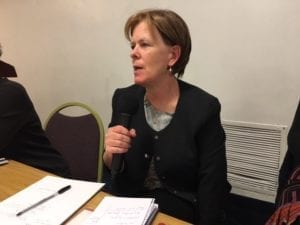
The labor movement and women’s movement have a lot to learn from each other—Lisa McGowan, Solidarity Center. Credit: Solidarity Center/Tula Connell
One of the most promising areas of cross-movement collaboration is the campaign to end gender-based violence at work, said Solidarity Center Gender Equality Director Lisa McGowan.
“It’s a really powerful issue—it helps bring together lots of different movements, primarily the labor and women’s movements—who have a lot to learn from each other,” said McGowan.
Last fall, the Solidarity Center held a multi-session workshop on building alliances around ending gender-based violence at work during the AWID Forum in Brazil, part of the Solidarity Center’s outreach efforts to connect with women’s movements and other likeminded allies around the issue. More than 2,000 women activists from around the world attended the AWID event.
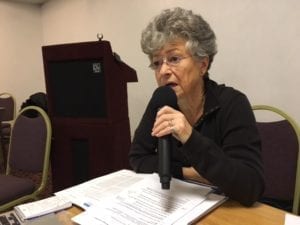
“Of the 100 largest economies today, 31 are countries”—Barbara Adams, Global Policy Watch. Credit: Solidarity Center/Tula Connell
Barbara Adams, senior policy adviser at the Global Policy Forum, discussed how growing economic inequality is hitting women workers especially hard, as wages decline along with women’s ability to exercise their rights.
Describing the increasing influence of corporate money on governments, which often contract out public services to less accountable private-sector providers, Adams said the stated goal of some corporate players is “governance without government.
“Of the 100 largest economies today, 31 are countries,” she said. “It’s no longer one person, one vote, but one dollar, one vote.” Unlike governments, corporations cannot be held accountable through the democratic process.
The role of the union movement is especially key in such an environment, said McGowan. “Workers have power because their labor is what fuels our economy,” she said.
Building on worker power in relation to corporations, the challenge for all progressive allies is to link the movements and link the strategies, she said.
Feminist Futures: Building Collective Power for Rights and Justice
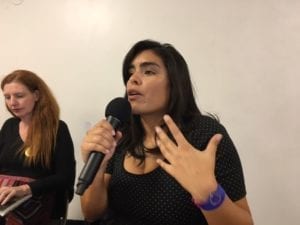
Ana Abelenda, AWID, described the cross-movement dialogue behind “Challenging Corporate Power.” Credit: Solidarity Center/Tula Connell
Ana Abelenda, AWID economic justice coordinator and panel moderator, described the process behind the “Challenging Corporate Power” report, which is based on a 2016 cross-movement dialogue convened by AWID and the Solidarity Center. Facilitated by JASS in São Paulo, Brazil, the meeting brought together women trade unionists; women workers; feminists; indigenous and black women; lesbian, bisexual, trans, queer and intersex (LBTQI) activists; and women human rights defenders to discuss, debate and share understanding of corporate power and what it means to their struggles and their lives.
The report reflects the participants’ explorations of successful movements to demand accountability—for labor rights violations, ecological damage, trade liberalization and privatization. Women beer promoters in Cambodia, for example, are increasingly forming unions with the Cambodian Food Service Workers Federation (CFSWF) to protest poverty wages, sexual harassment and violence, long working hours and toxic working conditions in bars and restaurants.
CSW meetings this month involve hundreds of high-level government delegates who, for the first time, are discussing women’s economic empowerment and the role of labor unions as core to achieving women’s rights—a huge milestone for working women around the globe in achieving recognition of their workplace struggles by the world’s human rights body—and one that worker rights organizations like the ITUC and Solidarity Center have long championed.
Check out our coverage of this week’s events on Facebook and on Twitter @SolidarityCntr.
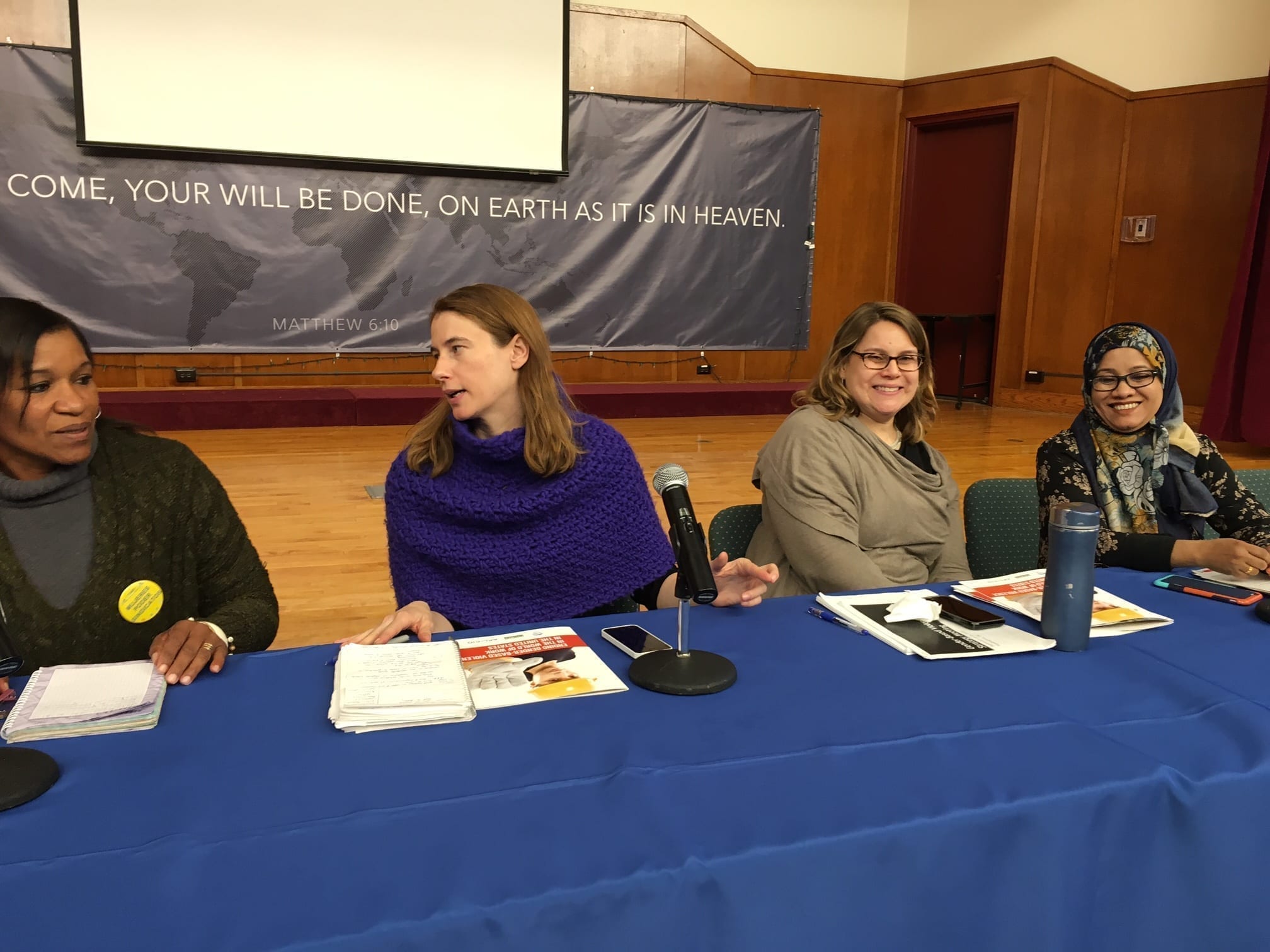
Mar 14, 2017
Gender-based violence at work is far more prevalent than reported and ending it will require women coming together to challenge male-dominated structures—whether in corporations, governments or their own unions, according to leaders and experts from a variety of unions and nongovernmental associations (NGOs) speaking yesterday in New York City.

“As prevalent as gender-based violence is in workplace, it goes unrecognized—Solidarity Center Policy Director Molly McCoy. Credit: Solidarity Center/Tula Connell
“As prevalent as gender-based violence is in workplace, it goes unrecognized,” said Solidarity Center Policy Director Molly McCoy.
McCoy was among participants on two panels Monday that focused on gender-based violence at work, part of events the Solidarity Center and its partners are holding in conjunction with the March 13–24 meeting of the United Nations Commission on the Status of Women (CSW).
Hundreds of high-level government delegates at the CSW will for the first time discuss women’s economic empowerment and the role of labor unions as core to achieving women’s rights—a huge milestone for working women around the globe in achieving recognition of their workplace struggles by the world’s human rights body—and one that worker rights organizations like the ITUC and Solidarity Center have long championed.
Gender-Based Violence Worse without Freedom to Form Unions
Panelists at the Solidarity Center session, “Eliminating Gender-Based Violence in the World of Work,” explored how unions enable workers, especially women workers, to speak up when experiencing sexual harassment and other violence on the job by providing a network of peer support.
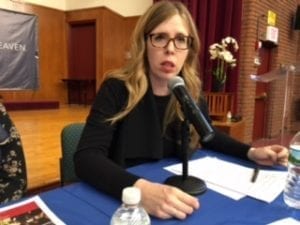
“The absolute most important thing is that we organize for worker power”—Julia Rybak. New York Hotel Trades Council. Credit: Solidarity Center/Tula Connell
“Workers having the resources and the community of support is something most workers don’t have,” said Julia Rybak, director of the New York Hotel Trades Council. “The absolute most important thing is that we organize for worker power.”
“Gender-based violence is always worse when there is no freedom of association,” said McCoy, who moderated the panel. “When workers are not organized (in unions), they don’t have resources to tackle gender-based violence.”
Conversely, McCoy said, “the persistence and prevalence of gender-based violence has an impact on freedom of association. Gender-based violence is very much a tool used to repress worker rights, to silence workers and to isolate workers so they can’t stand up for themselves and fight gender-based violence.”
“There are extraordinarily high rates of gender-based violence against women at the workplace,” said Robin Runge, a lawyer who represented survivors of violence and abuse for more than 20 years. Runge is author of the new report, “Ending Gender-Based Violence in the World of Work in the United States,” written with support from the AFL-CIO and Solidarity Center.
Women Empowering Themselves through Unions
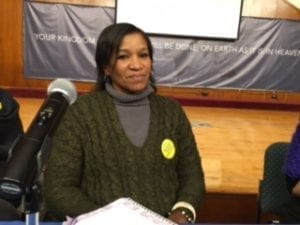
“Only by organizing can we get out of situations I faced when I was 12 and protect other domestic worker”—Ernestina Ochoa Lujan, IDWF. Credit: Solidarity Center/Tula Connell
Several panelists recounted their own experiences with workplace-based violence. Ernestina Ochoa Lujan, a domestic worker and vice president of the International Domestic Workers Federation (IDWF), began work as a domestic worker in Peru at age 11. At age 12, she was attacked by her employer.
“I couldn’t call my parents because I didn’t have parents, I couldn’t call authorities because we are not believed. I cry not because I have no hope but because I went on to organize with my union,” she said through a translator.
“Only by organizing can we get out of situations I faced when I was 12 and protect other domestic workers.”
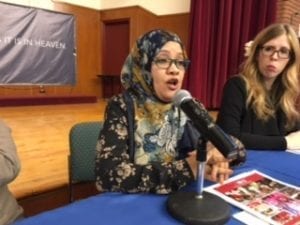
“We have to think about all those workers whose voice is not here”—Kazi Fouzia, DRUM. Credit: Solidarity Center/Tula Connell
Panelists and some of the several dozen audience members who spoke during a question and answer period described widespread violence against women workers—in Algeria, Argentina, Colombia and wherever women work and in whatever sector they are employed.
“We have to think about all those workers whose voice is not here,” said Kazi Fouzia, director of organizing at the New York-based Desis Rising Up and Moving (DRUM) organization, a 4,000-member worker association that includes primarily women in the informal economy.
Join the Stop Gender-Based Violence Campaign
Earlier in the day, 75 participants discussed steps involved in building support for an International Labor Organization (ILO) convention on ending gender-based violence.
“It’s important we go to the governments to make sure they support an ILO convention. We need a critical number of governments to move it forward,” said Marieke Koning from the Equality department at the International Trade Union Confederation (ITUC). The ITUC sponsored the panel, “Stop Gender-Based Violence (GBV) in the World of Work Campaign: How to Support an ILO Convention.”
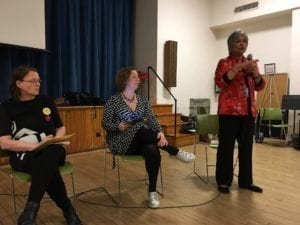
Amrita Sietaram, ILO ACTRAV section, described the process of creating and passing a convention to end gender-based violence at work. Credit: Solidarity Center/Tula Connell
Koning was joined by Amrita Sietaram from the ILO ACTRAV section, who described the process of creating and passing a convention to end gender-based violence at work, which she says has moved forward because of the efforts of the ITUC and global union federations. The ILO will discuss a draft text in June 2018 and unions, employers and others have from May to September this year to comment on the draft text.
Sietaram also described significant “employer resistance to a gender-based violence at work convention,” and noted that discussions will determine whether the final product is a “convention”—which governments agree to follow, or a “recommendation,” a weaker outcome that provides direction.
Speaking from the audience, IDWF General Secretary Elizabeth Tang described how domestic workers around the world worked for years to achieve 2011 passage of ILO Convention 189 covering domestic workers—and how the union has begun to reproduce those steps to move passage of a convention to end gender-based violence at work.
Join the ITUC campaign to end gender-based violence at work.
Follow us here, on Facebook and on Twitter @SolidarityCntr for coverage of the following Solidarity Center and partner events:
- March 15, 12:30 ET: “Building Power for Women Workers in the Changing World of Work”—AFL-CIO
- March 16, 12:30 ET: “Impact of Corporate Power to Women’s Economic Empowerment”—Association for Women’s Rights in Development (AWID) & Solidarity Center
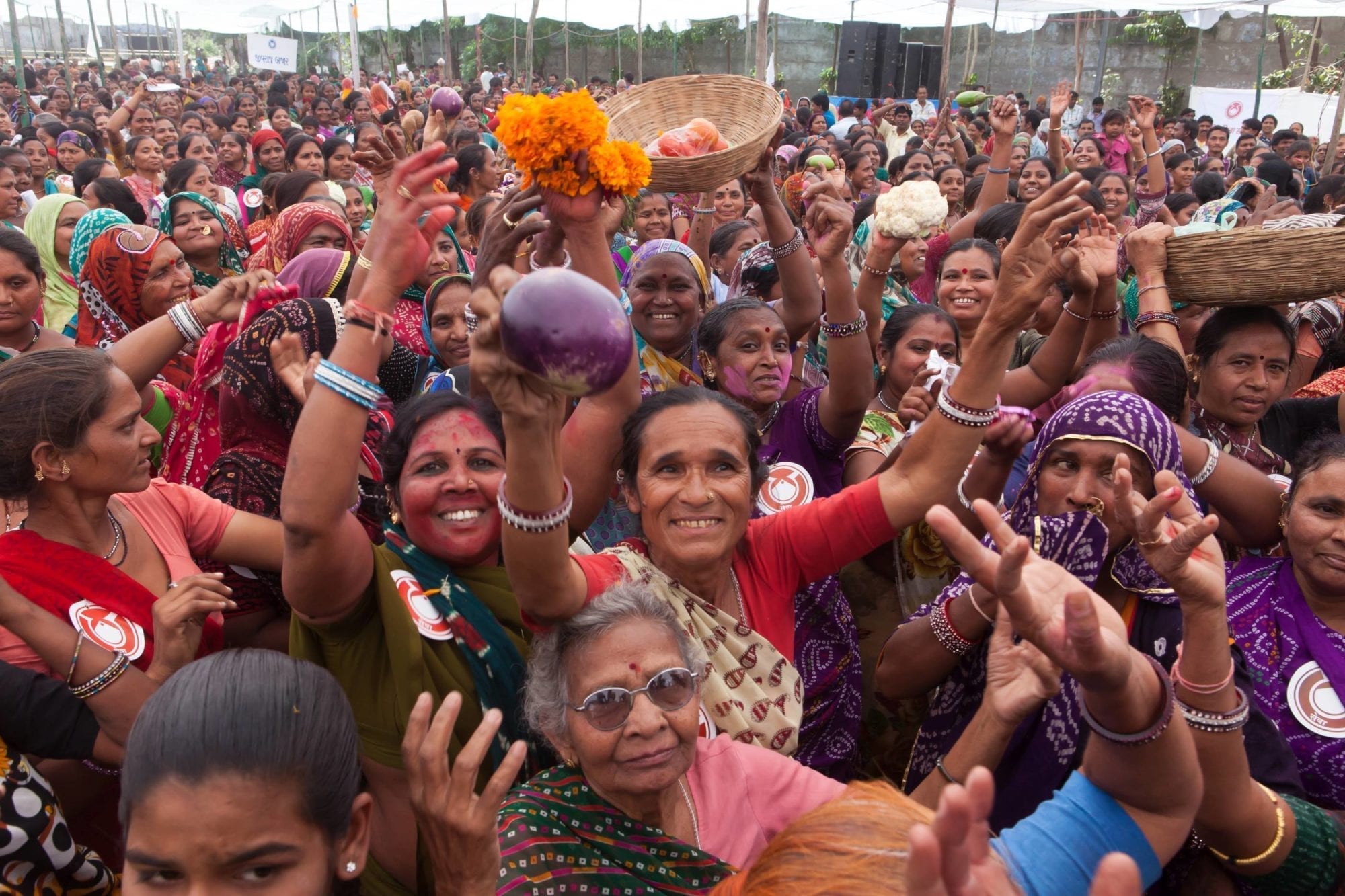
Mar 8, 2017
Hundreds of high-level government delegates at the Commission on the Status of Women (CSW) meeting at the United Nations in New York this month will for the first time discuss women’s economic empowerment and the role of labor unions as core to achieving women’s rights.
“Women’s Economic Empowerment in the Changing World of Work,” the topic of the March 13–24 meeting, represents a huge milestone for working women around the globe in achieving recognition of their workplace struggles by the world’s human rights body—and one that worker rights organizations like the International Trade Union Confederation (ITUC) and Solidarity Center have long championed.
Simultaneously, the global union movement, together with the Solidarity Center, is bringing together some 200 labor activists from around the world to New York for workshops and a four-day women’s leadership training.
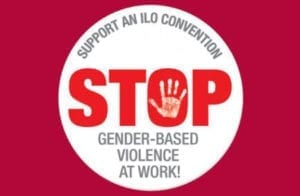 Labor and allied sessions include the Solidarity Center workshop on eliminating gender-based violence at work on March 13 and a discussion on the “Impact of Corporate Power on Women’s Economic Empowerment.” The latter event, sponsored by the Association of Women in Development (AWID) and Solidarity Center, is based on a joint 2016 report, “Challenging Corporate Power for Gender Justice: Highlights from a Cross-Movement Dialogue,” which outlines how national and transnational corporations can exploit women and other marginalized people and offers insights into strategies for resistance.
Labor and allied sessions include the Solidarity Center workshop on eliminating gender-based violence at work on March 13 and a discussion on the “Impact of Corporate Power on Women’s Economic Empowerment.” The latter event, sponsored by the Association of Women in Development (AWID) and Solidarity Center, is based on a joint 2016 report, “Challenging Corporate Power for Gender Justice: Highlights from a Cross-Movement Dialogue,” which outlines how national and transnational corporations can exploit women and other marginalized people and offers insights into strategies for resistance.
Concrete Achievements through the UN Process
The Solidarity Center has long focused on making working women’s issues a priority for UN bodies and, most recently, had its recommendations on employment, gender-based-violence and other workplace abuses included in a Committee on the Elimination of Discrimination against Women (CEDAW) report on behalf of Honduras.
Issued in November, CEDAW’s report, “Concluding Observations on the Combined Seventh and Eighth Periodic Reports of Honduras,” incorporates Solidarity Center recommendations to address the persistent gender wage gap; the lack of regulations protecting women from exploitative working conditions, like domestic work; and severe health and safety dangers for women agricultural workers. The UN formed CEDAW in 1979 following CSW’s recommendation that a single entity champion international standards on the equal rights of men and women.
Solidarity Center and Global Labor Help Shape CSW Document
The Solidarity Center and global unions contributed to a document on women’s empowerment at work that the CSW will discuss and amend before approving at the end of the March meeting. They urged the CSW to acknowledge the economic impact of globalization on women workers’ wages and the socioeconomic conditions fueling “the accelerated feminization of poverty.”
Crucially, global unions are recommending the CSW “recognize the importance of trade unions in addressing persistent economic inequalities,” in closing the gender wage gap, the gap between minimum and living wages, and social protection gaps.
The Solidarity Center participated in crafting the draft document throughout a yearlong process in advance of the CSW meeting. In 2016, the Solidarity Center and ITUC were among 25 participants at an Expert Group Meeting convened by UN Women to discuss and prepare the first draft. At the meeting, the Solidarity Center presented the paper, “Women’s Labor Rights and Economic Power, Now and in the Future.”
Created in 1946, the CSW is the main global intergovernmental body exclusively dedicated to the promotion of gender equality and the empowerment of women and is part of the UN Economic and Social Council (ECOSOC).
Watch the Solidarity Center website for coverage of the global union events and follow the action at our Facebook page and on Twitter @SolidarityCntr.
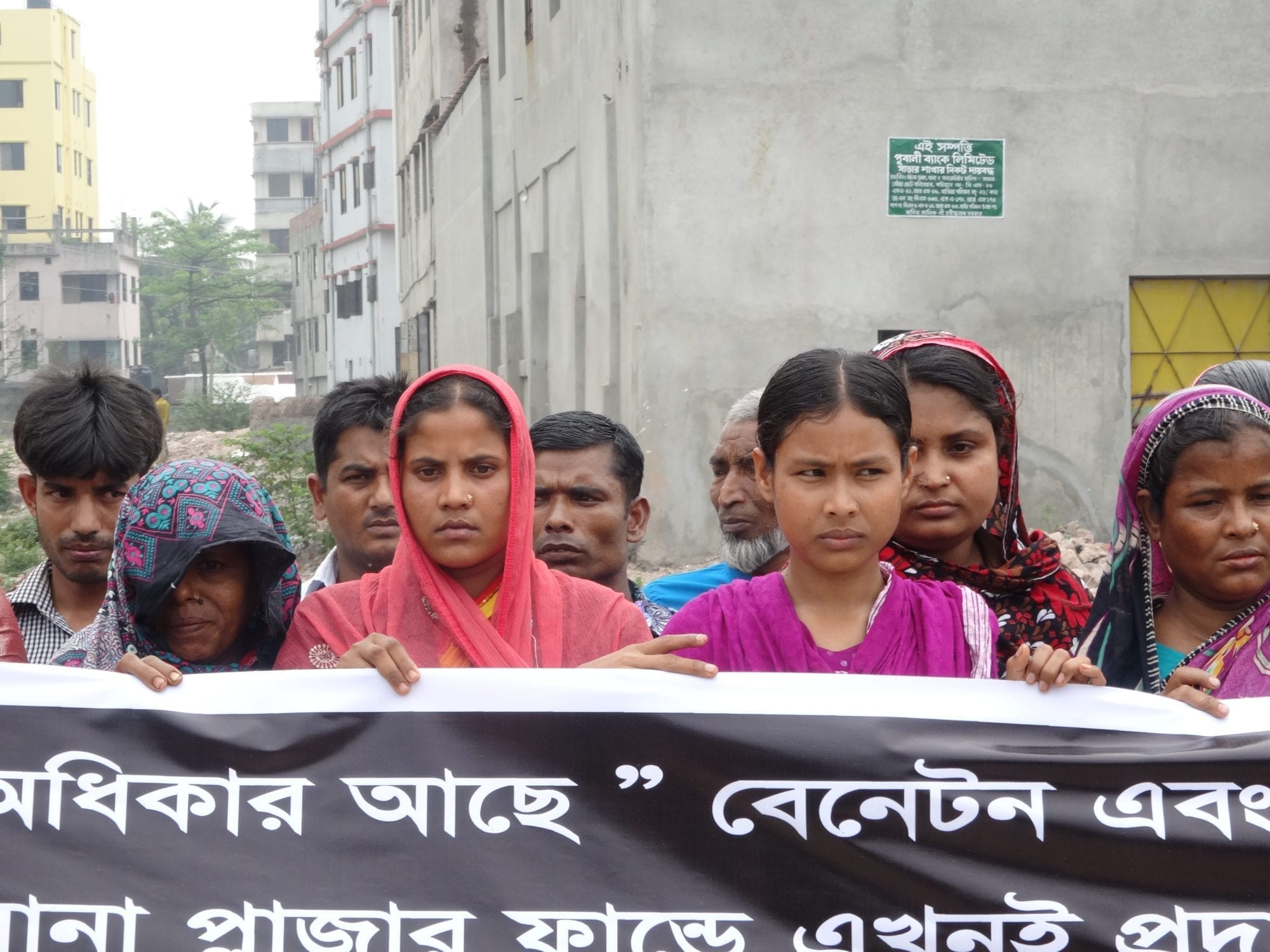
Mar 6, 2017
Labor rights are key to all human rights—and ensuring that the global human rights community champion worker rights is essential to addressing the many economic and political challenges throughout the world, according to panelists who spoke today at a United Nations side event in Geneva.
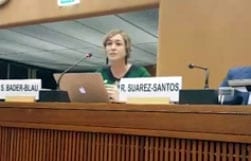
Shawna Bader-Blau urged the human rights and labor communities to join forces and fight the challenges of globalization.
“The challenge right now is for all of us in the broader the human rights community to stand together—NGOs, human right defenders, trade unions, everyone—to oppose the global closing of civic space and fight to create more decent work opportunities, better livelihoods and more human dignity and freedom,” says Solidarity Center Executive Director Shawna Bader-Blau. She spoke on the panel, “Freedom of Association as a Fundamental Workplace Right,” held in conjunction with UN Human Rights Council meetings. (See Bader-Blau’s full speech in the video, beginning at 48:07.)
The event builds on the landmark 2016 report presented by UN Special Rapporteur Maina Kiai to the UN in October that forcefully conveys how the vast majority of the world’s workers are disenfranchised from their rights to assembly and association—rights that are fundamental to all other human rights—either by exclusion or outright oppression.
“The report reminds us that freedom of peaceful assembly and association are foundational rights precisely because they are essential to human dignity, economic power, sustainable development and democracy,” says Deborah Greenfield, ILO deputy director general for policy.
“They are the gateway to all other rights. Without them, all other civil and human rights are in jeopardy.”
Globalization Blunts Worker Efforts to Improve Workplaces
Globalization has not benefited most of the world’s workers, says panelist Raquel Gonzalez, director of ITUC’s Geneva office.
The “dramatic increase in the power of multinationals,” with suppliers and contractors dictating the terms and conditions of employment for millions of workers, especially in developing countries, has resulted in low wages and temporary and outsourced work, which in turn limits the ability of workers to form unions and improve their working conditions, she says.
Further, says Gonzales, the growth of foreign direct investment means nations compete to attract much-needed funds—and in doing so, “states undermine worker rights.” A key example, she says, is export-processing zones, where workers are paid low wages and labor in unsafe conditions, yet typically are prohibited from forming unions, points Bader-Blau also underscored in her description of the ongoing campaign to silence garment workers that began in Ashulia, Bangladesh, last December.
States should provide grievance mechanism for abuses, says Gonzalez, but labor inspector offices are weak.
“The evidence is unequivocal that in many places and many instances it is the case that workers are denied their fundamental rights by the deliberate and intentional action by employers and the state,” says UN Deputy High Commissioner for Human Rights Kate Gilmore, who also spoke at the two-hour event.
Women, Informal Economy Workers Especially Vulnerable
Gonzalez touched on how workers in agriculture, the informal economy, domestic work and women workers in general are especially vulnerable to abuse because they often are excluded from national labor laws.
“That’s why global labor supports an ILO convention on decent work in global supply chains to cover areas not now covered by ILO instruments,” says Gonzalez.
Women also are exposed to gender-based violence at work, a violation of fundamental human rights, and the Solidarity Center, in conjunction with the global labor movement, is working for passage of an ILO convention on the prevention of gender-based violence at work.
The extension of human rights to workers is critical,” says Bader-Blau, and the power of bridging labor and human rights is especially necessary “given the global closing space for civil society and what we see as its connection to entrenched economic inequality, as workers lose or are repressed in their exercise of freedom of association.
“The key is really to advance freedom of association and assembly for workers,” she says.
Also speaking on the panel: Roberto Suarez-Santos, deputy secretary-general of the International Organization of Employers, and Jerald Joseph, commissioner of the Malaysia Human Rights Commission.
The event was co-sponsored by the Solidarity Center, UN Special Rapporteur United Nations Special Rapporteur on the rights to freedom of peaceful assembly and of association; the AFL-CIO, International Trade Union Confederation (ITUC), International Labor Organization (ILO) and CIVICUS.
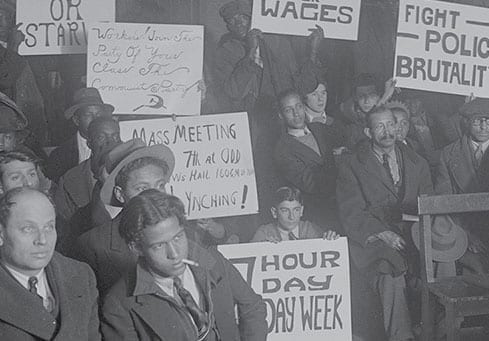
Dec 19, 2016
Members of labor unions and other nongovernmental organizations (NGOs) are invited to contribute to a United Nations report on civil society’s successes over the past decade. The report’s goal is to serve as a reminder of the importance of peace, security, prosperity, social progress and human rights to society.
For his final report to the UN Human Rights Council, Maina Kiai, the Special Rapporteur on the rights to freedom of peaceful assembly and of association, is seeking input describing specific, real-world examples of civil society achievements and successes over the past decade, the context in which these achievements occurred and the impact of these successes or achievements on society at large (at the local, national, and international level). The examples may be included in the report.
More information and a questionnaire–in English, Spanish and French–to facilitate your submission are available here.
Although it is well known that space for civil society globally has shrunk dramatically over the past 10 years, this report will highlight the less publicized but significant achievements civil society has made, despite working against all odds.
















